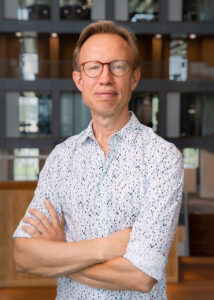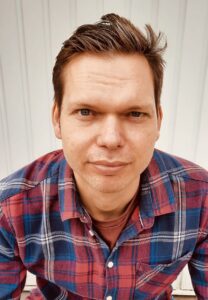There’s something truly special about STS scholars coming together. This year’s EASST/4S saw a mix of new and familiar faces from across the globe gathering in Amsterdam for four jam-packed days of collective learning. During the opening plenary, we were amazed by the number of hands that went up when we asked how many people were attending an EASST or 4S meeting for the first time. It proved a testament to the number of scholars who have taken an interest in STS in recent years, and to the large numbers who came to Amsterdam to explore whether this is a field where they may feel academically at home. We sincerely hope the conference has left a lasting impression on you and that the conversations you had and the connections you made convey that this is a welcoming and stimulating academic space.
Three months after the conference, what remains for us as a collective, as a field? When we offered to host the meeting back in 2022 following a lovely EASST meeting held at the height of summer in Madrid where colleagues could for the first time since lockdown times meet again in person, we wanted to ensure that the Amsterdam EASST/4S meeting would be held face-to-face. We felt that an online-only or hybrid model misses too much of what matters most in a conference: meaningful, authentic interactions between people in the flesh. We were unsure what the consequence of prioritizing the face-to-face encounter would be. We anticipated a possibly lower turnout but surmised that the chance to accommodate a wider range of possibilities for interaction, including mixed-format panels, would make up for that loss.
However, it soon transpired that there was an overwhelming interest in an in-person meeting. Although that posed its own logistical challenges, that truly stretched the superlative VU Amsterdam Events team, we haven’t regretted the decision to meet in-person for a moment. Discussions during an online EASST Council conversation on the future of conferencing raised various issues regarding the best way to host a truly inclusive conference. Some feared that a hybrid format would allow everyone with sufficient funds to meet in person, while less well-resourced colleagues could seem to be included since they could also join online, thereby rendering invisible how much they would be excluded from some of the most important parts of the event. Since not being able to attend at all is clearly also a problematic form of exclusion, we were extremely pleased that both societies made additional budget available for precarious scholars.
What’s next?
The enthusiasm about of this year’s in-person format raises important questions for the future of STS conferencing. The meeting was a vital reminder of the rich interactions that follow when we are physically together and of the format-experiments that are then possible, but also of the unsustainable social and environmental impacts of gathering thousands of international colleagues in one place. Could the future of STS conferencing consist of events that combine online and face-to-face sessions? Could there be hubs, where people meet in different locations in person, with some shared sessions streamed online during a multi-sited plenary? The main message we received during this year’s EASST Council online conversation and during Amsterdam session on the future of conferencing was: experiment! The inventiveness of the STS community will be an enormous asset as we think about next steps. The experiments in Amsterdam did seem to pay off. These included the mixed-format panels, staggered timetable, voucher system for meals and drinks, and including the social event – the Forest Festival in the Amsterdamse Bos – in the registration fee. Each one provided valuable lessons about how we can continue to discover together what it means to meet in accessible, inclusive, and sustainable ways. Let’s continue to explore these futures together in the months and years ahead.
Author biographies
Teun Zuiderent-Jerak is Professor of Transdisciplinary Science & Technology Studies. His research brings together intervening in practices and furthering scholarly understanding of them. Knowledge standardization, evidence-basing, global health, health care markets, and technologies for inclusion are among his interests.
Michiel van Oudheusden is an Assistant Professor of Citizen Science for Responsible Transformation at the Athena Institute (VU Amsterdam), working at the intersections of open science, public engagement, and innovation governance. He is a cofounder and coordinator of the FWO-funded Belgian Science, Technology and Society network (B.STS).

